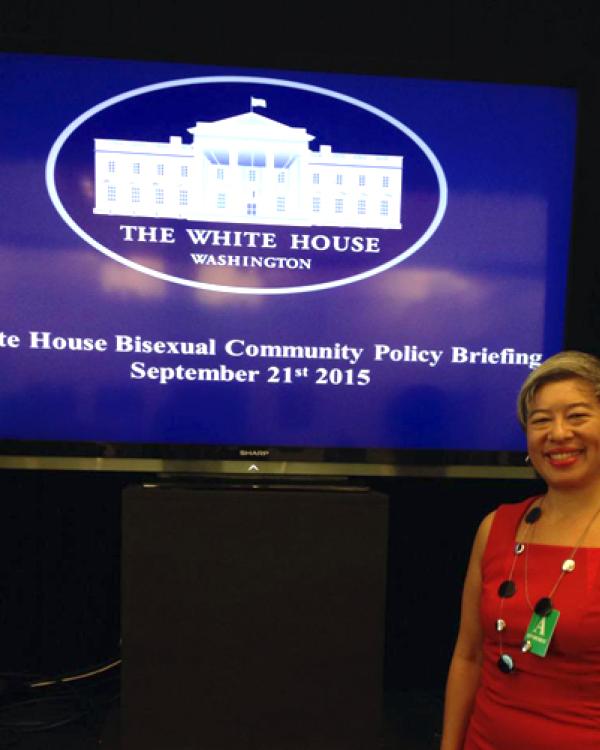
Tania Israel, a professor in the Department of Counseling, Clinical, and School Psychology at UC Santa Barbara’s Gevirtz School, was an invited representative to the first White House Bisexual Community Policy Briefing held in Washington, D.C. on September 21. The event – a follow up to the first bisexual community issues roundtable in 2013 – brought together nearly 100 researchers, activists, and government officials from across the country to shed a light on the often-invisible B in LGBT.
“Both Administration officials and community leaders led panels and discussions to address ongoing challenges in the bisexual community, with respect to health, housing, employment, violence, and education,” the White House wrote in its summary of the event. “Attendees had the opportunity to provide recommendations to better support bisexual youth in schools and communities, better ways to address intimate partner violence, and how policies can be inclusive of the bisexual community.”
Although there are more bisexuals than lesbians and gay men combined, bisexuals are largely invisible as they cannot be identified based on their current or past partners. What’s more, bisexuals often experience stigma not only from heterosexuals (for being different), but also within gay and lesbian circles, where they sometimes get the message that they will eventually come out as lesbian/gay. Beyond these kinds of prejudices, bisexuals’ health and mental health care needs often go unmet. So a meeting like this briefing can help raise awareness and look at ways to increase bi-inclusivity not just in the general public but among health care workers, too.
Israel noted the significance of the event, “It was a productive meeting, not only because we were able to connect with people from government agencies, but also because we were able to draw on perspectives from bisexual community members, advocates, and researchers to set policy priorities. I want people to know about this gathering because I want bisexuals to know that people recognize the challenges they face and are advocating for them.” Professor Israel described her experience at the briefing in this American Psychological Association Public Interest blog.